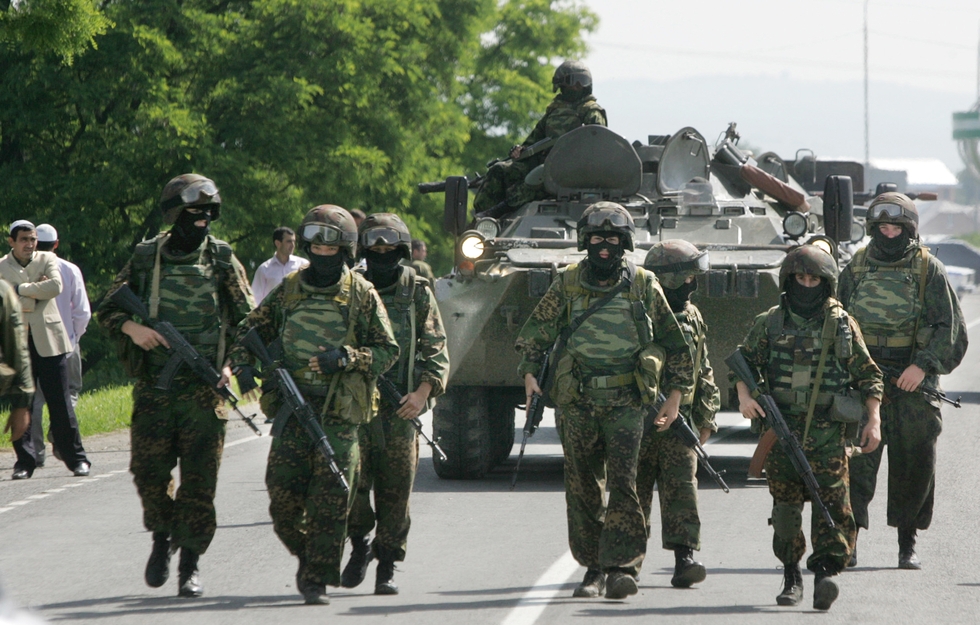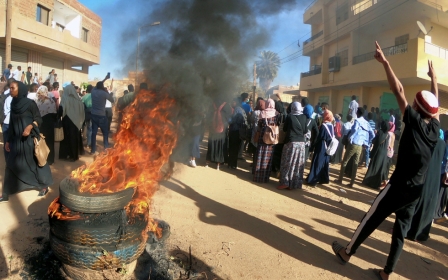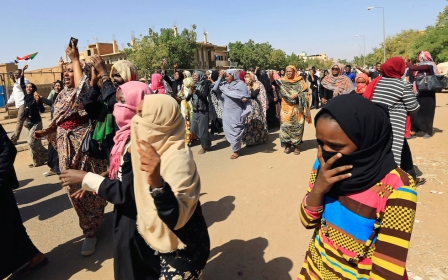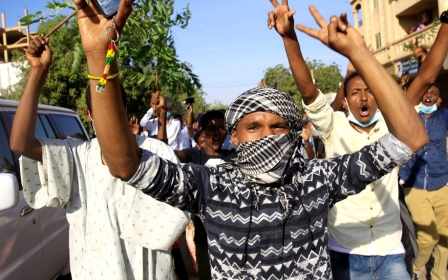Russian private contractors active in Sudan during protest crackdown

Russian private contractors have been training Sudanese security forces, the federation's foreign ministry said on Wednesday, confirming a Russian presence during the past month's protests against Moscow ally President Omar al-Bashir.
During the early days of the protests, which started on 19 December, demonstrators and journalists reported groups of foreign men gathered near major rallying points.
"According to our information, representatives of Russian private security companies, who have nothing to do with Russian state bodies, really do operate in Sudan," Maria Zakharova, a spokeswoman for the Russian Foreign Ministry, told reporters.
Zakharova said she was responding to what she called an irresponsible story in the British press, which she said had falsely alleged that Russian mercenaries were helping the Sudanese authorities quell the protests.
"Their task is limited to training staff for the military and law enforcement agencies of the Republic of Sudan," she said.
Amnesty International has accused Sudanese forces of a "deadly onslaught" that has killed at least 40 protesters.
British newspaper The Times reported earlier in January that Russian group Wagner has provided "strategic and practical training" to Sudanese forces.
Official statistics from the Russian Federal Security Service available online show a surge in the number of the Russian citizens who departed for Sudan in late 2017.
Two hundred Russians travelled to Sudan in the fourth quarter of 2017, according to the data. Prior to that, the highest number of Russians heading to the African country was 76 in any given quarter since 2013, the same data showed.
As Bashir visited Qatar on Wednesday, where the Gulf state's emir backed Sudan's 29-year president with a call for "unity", Sudan's oil minister said the country had received economic help from the United Arab Emirates and offers from Russia and Turkey.
"We accepted it as a normal matter between friendly countries in light of the current circumstances that Sudan is going through," Oil Minister Azhari Abdel Qader said of the aid, which included unspecified help from the UAE and offers of "fuel, wheat and others" from Turkey and Russia.
The protests were originally fuelled by a hike in living costs that exacerbated existing austerity measures but morphed into calls for the end of Bashir's rule.
Radio Dabanga, a Sudanese radio station based outside of the country, reported in August that 500 Russian soldiers were stationed on the border with the Central African Republic and South Darfur, where fighting between the Sudanese government and rebels has allegedly killed 300,000 people.
The report claimed the Russians were training both Sudanese officers and Muslims rebels from the Central African Republic.
Russian military contractors from Wagner have also been involved in the Syrian conflict, where Moscow has backed President Bashar al-Assad against rebels. Russia has been cagey about its activities in Syria, where up to several thousand private Russian military contractors secretly helped Damascus regain territory.
Russian officials denied the contractors operated in Syria at the Russian state's behest despite them being based at a military facility back home.
The US State Department condemned the Sudanese government's use of force against protesters in a statement on Wednesday, "including the use of live fire, and the excessive use of tear gas by the Sudanese security forces.
"We urge the government to release all journalists, activists, and peaceful protesters who have been arbitrarily detained, and to allow those facing charges full access to legal representation and the opportunity to seek legal review of their detention," the statement said.
New MEE newsletter: Jerusalem Dispatch
Sign up to get the latest insights and analysis on Israel-Palestine, alongside Turkey Unpacked and other MEE newsletters
Middle East Eye delivers independent and unrivalled coverage and analysis of the Middle East, North Africa and beyond. To learn more about republishing this content and the associated fees, please fill out this form. More about MEE can be found here.




